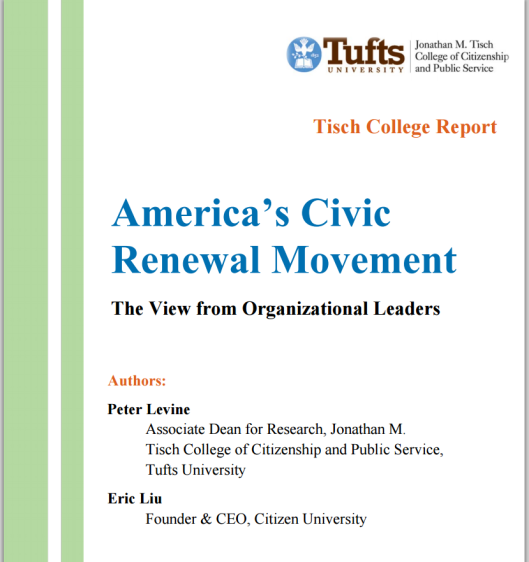One of the pleasures of working at the Florida Joint Center for Citizenship is that we are housed in the environs of the Lou Frey Institute of Politics and Government. Because the LFI is a part of the broader University of Central Florida community, it is available to students as a work-study opportunity. Happily, this means that we are blessed with young college students who are wonderfully engaged in civic life. It is important to note, however, that the mission statement of the Lou Frey Institute includes “Promoting the development of enlightened, responsible, and actively engaged citizens”. This does not mean creating a generation of liberals or conservatives, Republicans or Democrats, Libertarians or Greens. It means citizens. So we welcome students from all perspectives, and we encourage them to pursue their civic passions.
One of these students, Brittany Turner, is an active member of the Libertarian-leaning organization Young Americans for Liberty, and she had the opportunity to serve as an intern at the Institute for Humane Studies. As a civic educator, I am thrilled by the idea of young people living the life of an engaged citizen, and I thank Brittany for her efforts to make a difference. Today’s post describes her experience working in the heart of our nation’s capital.
This past summer, I had the pleasure and honor of participating in an internship program in Washington DC. The program I interned through was the Koch Internship Program (KIP), which is run by the Charles Koch Institute. The KIP program is a educational program where attendees receive hands on professional development training and education on Classical Liberal knowledge and skills, while building a valuable professional network and an understanding of the non-profit career path. My actual internship was at the Institute for Humane Studies (IHS). The Institute for Humane Studies supports the achievement of a freer society by discovering and facilitating the development of talented students, scholars, and other intellectuals who share an interest in liberty and in advancing the principles and practice of freedom. At IHS, I interned in the Events Management department where I took on many big projects throughout the summer. For example, I was involved in the creation of the readers IHS sends out to their fall and spring seminar participants.
One of the best things about interning in Washington DC was the atmosphere. So many important events are going on every single minute of the day in DC: policy decisions are being made, citizens are trying to influence their congress-person to have a particular stance on a specific issue, the Supreme Court is deciding liberty-affecting cases, and so much more. Another great characteristic of the DC atmosphere is how professional it is. This is the best environment for a young professional that seeks to be engaged in civic life. I felt involved and engaged as a young professional and as a citizen. It made me want to strive for better. When everyone else around you is achieving great things and demonstrating their passion for civic engagement and politics, it is contagious. It’s an ongoing joke in DC that if you can schedule your day right, you can rely on feeding yourself (breakfast, lunch, and dinner) by attending networking events (because so many go on everyday of the week).
Participating in a internship program and interning was definitely one of the best decisions I have ever made. I learned a lot about working in events at a non-profit, polished my professional development skills, learned so much more about Classical Liberal philosophy, and made the best group of friends anyone can ask for. Interning in Washington DC was a dream not many achieve and is something I recommend, especially if you are looking for ways to be involved and make a difference that go beyond simply voting. Truthfully, you don’t even have to go to DC to volunteer as a citizen! Check out your local campaigns and nonprofits and see if there are opportunities for civic engagement and practice. It doesn’t matter what your politics are; it only matters that you act as a citizen should and be involved! My experience in DC taught me this and so much more.
Thanks, Brittany, for the post, and for your desire to step up and engage as both a college student and a citizen!


